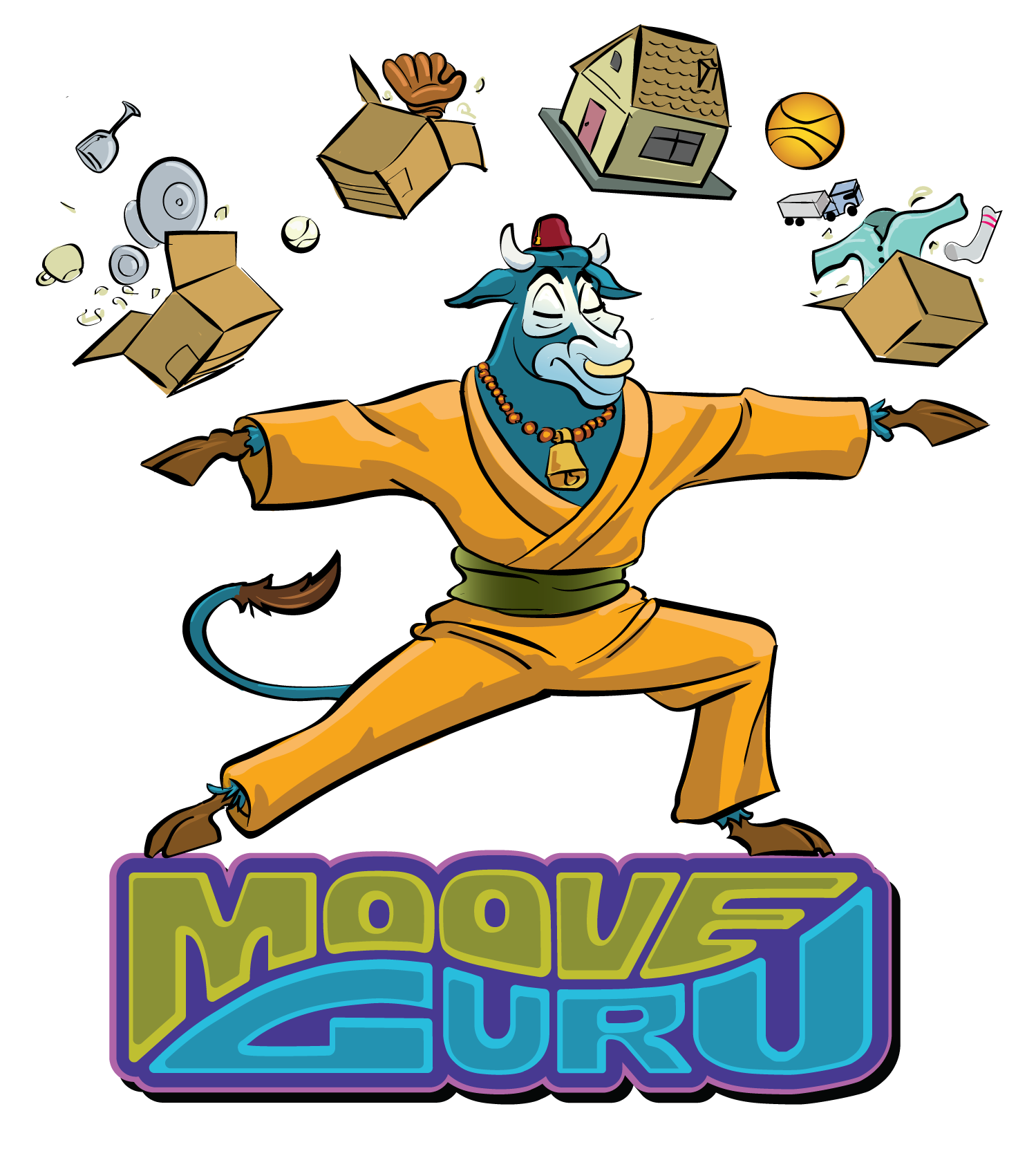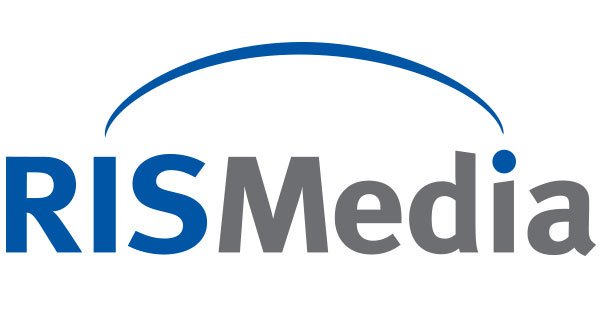MoxiWorks Adds AskAvenue to Cloud Open Platform

CLICK HERE TO READ THE FULL ARTICLE MoxiWorks has added AskAvenue, a chat tool for real estate websites, to its Moxi Cloud open platform, the company recently announced. “The AskAvenue chat tool gives agents the ability to follow up with visitors on their website right away,” says Mike McHenry, vice president of Channels and Partnerships at MoxiWorks. “We live in a mobile world and potential homebuyers expect answers in real-time. AskAvenue allows agents to accomplish this.”
Technology-Poor Agents are Losing Their Spheres


By Maddie Jostol
Technology is woven into almost everything we do. It’s integrated into our everyday lives, whether we like it or not. Professionals are having to find a balance, using technology to their advantage without forgetting to maintain interpersonal relationships. This is particularly true for real estate agents who primarily manage relationships, but need technology to optimize their business.
The home sales process is a personal one.
People work with agents because they see the value in having a trusted advisor who can lend a professional opinion, truly listen to their needs, and hold their hand through the process. This isn’t going to change – there’s something about the human aspect of a transaction like this that people need to rely on. Does that mean technology should be omitted from the equation? Not at all.
The sphere selling methodology is all about building strong relationships.
Sphere selling is incredibly powerful, and it’ll only continue to gain importance in the future. It’s centered around creating a sphere of influence filled with people who know and trust you. It’s called a sphere of influence because you’re their go-to advisor – the influential, trustworthy voice when it comes to real estate. This doesn’t just mean you should make sure your contacts are in your agent CRM – that’s an important step, but it goes beyond that. Truly nurturing your sphere over the long-term isn’t really an option, it’s a requirement to growing your pool of repeat and referral business, which enables you to rely less on low quality paid leads.
Agents leveraging a sphere selling methodology are able to achieve sustainable growth in their business. Why? Because it allows agents to improve sales by nurturing strong human relationships while simultaneously embracing technology.
Technology is required to help you maintain relationships with your sphere.
Keeping up with your sphere isn’t easy. It takes time and a great deal of organization and small, repetitive tasks – this is where technology comes into play. Agents are continually juggling tasks, clients, and transactions, and more. The heart of a good agent CRM is functionality that enables agents to do their jobs better, in less time, with fewer mistakes, and with less stress.
Moxi Engage, the CRM we’ve built for agents, is geared towards enabling the agent to be more efficient and thorough in how they maintain their sphere of influence. The integration with other tech tools means you always know what actions you’ve taken with a contact and where you stand with that contact. The heart of a good agent CRM is really giving the agent the opportunity to better manage and maintain their sphere. Here’s how:
• Automate repetitive tasks, such as monthly newsletters
• Manage data and integrate with the MLS and other tools, so data is always up to date
• Keep track of all the contacts in your sphere
• Help you stay one top of all your tasks so you don’t miss a beat
• Remind you of important dates
• Recommend actions to take to maintain your sphere
When agents don’t have the technology they need to properly nurture their contacts, they lose their sphere. Without maintaining contact, people take their business elsewhere. This is a dangerous game for agents in today’s market where leads are already scarce. Not only having a great agent CRM, but using it to your full advantage, will ensure you stay competitive and continue to grow your business. Don’t lose out – use sphere methodology and the right tech tools to grow and maintain your sphere.
10 Easy Ways Agents Can Run a More Profitable Business


By Tiana Baur
There are some simple, yet essential ways to make sure your business is as profitable and thriving as it can be. These ten tips will hopefully serve as a check list for when tax season comes around, as well as the rest of the year in order to prepare and set your business up for the brightest possible future.
1. Remember to file quarterly taxes
This may seem obvious to most, but even though you know you need to do it, you don’t always remember to. Life gets busy. Filing quarterly taxes means avoiding penalties and additional interest owed. Not doing so can also raise a red flag with the IRS and hurt your business in the long run.
2. Home office deduction
Make sure you deduct for a home office, but make sure you don’t over exaggerate the size of the space. There’s a fine line with this one. Let’s say your home office is 250 square feet
of a 2,500-square foot home, the percentage of the deduction you can take is 10 percent. Remember you can only do this if you aren’t already deducting your office space at your brokerage’s office. Whatever you do, make sure you choose one to deduct so you don’t miss out on hard earned cash.
3. Mileage reporting
Don’t. Be. Sloppy. If you only remember to track miles on some days, you’re missing out. Tracking all your miles is the key to tax saving success. QuickBooks Self-Employed app auto tracks the mileage, so you don’t have to worry about remembering. With this program, you can deduct an average of over $7,000 dollars a year. Capture everything you need automatically, then categorize mileage with the click of a button.
4. Deduct your big purchases
Buying a laptop, phone, printer, furniture or anything else related to your business? Deduct! These big ones might get forgotten if you purchased them in the first two quarters of the year.
5. Coffee, lunches, dinners, cocktail hours
If you’re constantly taking your clients out for a bite or a coffee, make sure you keep your receipts. Scratch that. Snap a photo in your QuickBooks Self-Employed app. No more leaving receipts in boxes or in the glove box of your car. No more! Doing this correctly means saving agents an average of over $4,000 a year.
6. Avoid an audit
The more money you make, the more likely you’ll be audited. If your income is creeping up, it’s time to use a little extra paper to employ better tracking of receipts, donations to charitable causes, and mileage. Maybe also time to consider hiring a professional to keep an eye on your records, rather than trying to keep track of it all yourself. Maybe.
7. Deduct software
This one might surprise you. You can fully deduct any software needed to run your business, including accounting and lead generation software. QuickBooks Self-Employed for example, which automatically tracks your expenses and mileage, can be fully deducted. Win-win.
8. Further education
Lots of states require continued education to keep a real estate license, while in others, it’s not only required, but crucial to stay competitive. You are probably able to deduct registration costs, transportation, and accommodation costs for coaching, courses, etc. This goes for in-person and online courses.
9. Desk fees
Your desk fees are deductible regardless of your brokerage. With QuickBooks Self-Employed you can set a rule to automatically categorize this expense whenever you pay that desk fee. Keep in mind, you can only do this if you aren’t doing the home office deduction.
10. Travel
If you’re travelling to a conference, having QuickBooks Self-Employed makes life way easier. It allows agents to focus on networking and the purpose of their trip, by linking their bank account to the app. As soon as agents incur any expense associated with travel, all they do is tap a button to categorize it in one of the IRS approved categories.
Get started with QuickBooks Self-Employed today and start running a more profitable, professional business.
Positioning Your Value Proposition Against Zillow Instant Offers


By Tiana Baur, Content Marketing Manager
We’ve been talking a lot about Zillow Instant Offers. At some point, there will be buzz in your offices about them and your agents need to know how to clearly articulate their value. In our last post on this topic, we talked about what they potentially mean for real estate agents and how important it is to continue to provide comfort and trust to their clients. But what does that mean in tangible terms? How does one properly position themselves then? Providing value, client satisfaction, and being the trusted advisor to all clients is easier said than done.
To review, Instant Offers works like this: It connects homeowners with investors, helping them receive multiple offers based on their “home details and comparative sales.” All the homeowner has to do is answer some questions, submit some photos, and pick an offer from a verified investor. They then schedule a free home inspection and close on the date they choose. Simple, painless, virtually no work done by the homeowner. There is an option to use an agent, but the fact that homeowners don’t have to is the key.
Here’s how you can combat this and position your value proposition against it:
Have their back.
Agents need to keep doing what they’re good at. Show your prospects and clients that you care. That you’re human. That you’ll be with them every step of the way. Show them your unique knowledge of their neighborhood that you specialize in with articles and statistics and information that only you could know by working in the that area for a decade or even before Zillow existed. Agents are the experts.
If they’re thinking of using Instant Offers, show them why you’re worth it.
Instant Offers doesn’t answer phone calls at 2am when the home seller is crying and stressed because something unforeseen went wrong last minute during the transaction. Instant Offers doesn’t send a bottle of champagne to congratulate them on their great home sale. Instant Offers doesn’t promise to hold their hand from the very beginning, all the way until they’ve moved and settled into their new home. Instant Offers doesn’t care that the people who bought the home aren’t a right fit for the unique neighborhood’s culture. Agents do. Even if your prospect went this route, call them, check up on them, see how they’re doing. Chances are, they’ll regret their decision and realize they need to change their route.
Show you know more than an algorithm.
There are a lot of things an algorithm knows about people. Arguably, too much. But what they don’t know is that the house they’re trying to sell actually has more square footage than the neighbor’s house that sold last month, and because their view is only partially blocked, can actually make more than what Zillow Zestimates says it’s worth (which is wrong most of the time…ahem). The thing is, Zillow and these other websites are only as good as their data, which isn’t always accurate. Even an error margin of 8% (not uncommon with Zillow), means homeowners are missing out on money. The average listing fee is 6%, so even when it’s all said and done, you’d still be making more by going through an agent.
The bottom line.
Technology will continue to grow and evolve. Look at us. We’re a tech company that is changing the way the industry operates. The difference? We want to help the brokerage. Our entire business model is built around the purpose of making brokerages more profitable, by helping make their agents be more productive. Not all technology is out to eliminate agents from the real estate game. There will always be certain things in life that require a human element: Starting a family, comforting someone dear to you, and helping people find the right home to do both of those in.
How to Compete With Keller Williams’ $1 Billion for Technology

By Maddie Jostol
 It’s no secret that Keller Williams is investing heavily in technology. With the unveiling of the Keller Cloud earlier this year followed by a recent announcement that they’re setting aside $1 billion to invest in technology development, they’re generating a lot of hype in the industry. As a brokerage with over 800 offices and 150,000+ associates worldwide, it’s hard not to be intimidated by these numbers.
It’s no secret that Keller Williams is investing heavily in technology. With the unveiling of the Keller Cloud earlier this year followed by a recent announcement that they’re setting aside $1 billion to invest in technology development, they’re generating a lot of hype in the industry. As a brokerage with over 800 offices and 150,000+ associates worldwide, it’s hard not to be intimidated by these numbers.
The truth is, you don’t need $1 billion in spare cash to keep up. At the end of the day, it isn’t about having a fancy proprietary solution, it’s about investing in your agents, delivering a competitive experience, and meeting consumer expectations.
Consumer expectations are changing – they now expect agents to deliver fast, accurate information. Agents need an organized, integrated database in order to deliver on these expectations. It enables you to elevate your consumer experience in a scalable way.
Technology is woven into almost every part of an agent’s day-to-day life. They need tools that will enable them to work faster and smarter, so they can stay competitive while enjoying a healthy work/life balance. When you invest in your agents and their success, it rolls up into your brokerages’ success.
Keller Williams happens to be doing this through a platform, where the brokerage can run its entire business. We agree they’re onto something here as they’re jumping onboard with an important trend. The open platform is where the entire industry is heading as it helps brokerages integrate technologies across the entire organization, increasing efficiency and profits.
You need best-in-class tools to compete. You need a power strip to plug-and-play. But you don’t necessarily need to build this in-house. There are ways to keep up with the competition, even if you don’t have a spare $1B. After all, you are real estate experts, not a tech firm. That’s why MoxiWorks strives to complement brokerages, offering a comprehensive open platform, the Moxi Cloud, which integrates all their brokerages’ technology. We take care of your tech so you can place your focus on real estate. An open platform is the ecosystem for your brokerage technology. It’s where all of your tech tools live, sharing data and integrating your entire organization. You have the flexibility to change along with the industry. In fact, the beauty of the Moxi Cloud open platform is that you aren’t limited to MoxiWorks tools, but can plug and play the tech tools and services that best fit your brokerages’ culture and needs.
How does this help you compete? You can do everything they can do, and you don’t have to invest $1 billion to do it.
The Moxi Cloud Proudly Welcomes: AskAvenue!

 Our open platform, the Moxi Cloud, is very excited to welcome AskAvenue to the team! AskAvenue is a mobile chat tool that integrates with agent’s websites, leveraging the power of one-on-one communication. AskAvenue lets agents engage with online visitors and chat with them directly from their Apple or Android phone, in real-time.
Our open platform, the Moxi Cloud, is very excited to welcome AskAvenue to the team! AskAvenue is a mobile chat tool that integrates with agent’s websites, leveraging the power of one-on-one communication. AskAvenue lets agents engage with online visitors and chat with them directly from their Apple or Android phone, in real-time.
Capture Attention
Agents can capture the attention of online visitors by proactively contacting them with real-time online chat invites and respond conveniently from their mobile phones.
Qualify Prospects
Chat with and qualify prospects in real-time. Agents now can talk to their prospects live about their unique buying and selling needs, providing a higher grade of customer service.
Connect, Converse, Convert
AskAvenue helps agents convert more of their website visitors to leads and receive exclusive chat requests from their very own listings. Leads then go directly into their Moxi Engage account, providing efficient integration. From there, leads go into the agent’s pipeline and agents are prompted to continue the lead conversion process.
“The AskAvenue chat tool gives agents the ability to follow up with visitors on their website right away. We live in a mobile world and potential homebuyers expect answers in real-time. AskAvenue allows agents to accomplish this,”

said Mike McHenry, VP of Channels and Partnerships ay Moxi Works.
Adding the AskAvenue chat tool to the Moxi Cloud was a no brainer. Now agents can provide better, more meaningful communication to their prospects! Find out more about AskAvenue and their chat tool here.
By the way – the Moxi Cloud has almost 40 tools and services on it now! Check out more here.
Instant Offers and what to do about them

By Tiana Baur
2017 has brought a lot of change and disruption to the real estate industry; some good, others upsetting at the very least. In the spring, Zillow announced Instant Offers, allowing homeowners to potentially cut out the agent. This is one of many efforts to remove real estate agents from the transaction, but client satisfaction may say otherwise.
What is Instant Offers?
Instant Offers connects homeowners with investors, helping them receive multiple offers based on their “home details and comparative sales.” All the homeowner has to do is answer some questions, submit some photos, and pick an offer from a verified investor. They then schedule a free home inspection and close on the date they choose. It’s that simple.
What this means for agents
For obvious reasons, Instant Offers can seem very attractive to homeowners. There is little to no work needed and they get to do it all on their own schedule. Plus, they don’t have to pay any fees to an agent.
What these homeowners don’t take into account, is having someone they can depend on, call when they need help or advice, and trust what’s going to happen with the transaction. Given that Instant Offers is new, many homeowners will shy away from it because of fear of the unknown. Because we’re humans, right? We want security. We want to know the largest transactions of our entire life are going to go smoothly.
How agents and brokerages can combat this
People don’t buy luxury cars just for the car. They buy them because they also get incredible service and are never left stranded on the road, waiting for a tow truck they had to call themselves. They buy them for the unreal customer service, knowing they are in good hands. Real estate agents are that person for homeowners and homebuyers everywhere. You provide comfort, and most importantly, are someone to depend on.
Stay true to your clients. Your clients will choose you over Zillow again and again if you’ve earned their trust and confidence as their advisor. They know you, they’ve transacted with you, they want you to handle the transaction for them. Earn your client’s trust to get and keep their repeat and referral business.
Although the real estate world is turning to tech for just about everything, there is something to be said about the human element, which Instant Offers doesn’t provide. Never doubt your importance when it comes to couples, families, and loved ones going through a major transition in their lives.
We firmly believe brokerages and agents play a vital in real estate. Moxi Works helps agents be more productive, while making brokerages more profitable. Find out more at moxiworks.com.
2018 Is the Year of the ChatBot


By Maddie Jostol
You need to determine where chatbots fit within your business. That’s right, not “if” but “where.” Eighty percent of businesses already use or plan to use chatbots by 2020, according to a survey by Oracle. Some are even predicting that chatbots will be the new way for companies to monetize the mobile experience, where smartphone apps are losing steam. It may sound intimidating, but like it or not, chatbots are the new must-have thing for businesses in all industries to keep up with changing technology. Is this the case for the real estate world as well? We dug a little deeper and here’s what we found.
First things first: What is a chatbot?
“A chatbot is a computer program that maintains a conversation with a user in natural language, understands the intent of the user, and sends a response based on business rules and data of the organization,” as defined by Chatbots Magazine. It’s exactly what it sounds like – a chat function backed by AI (artificial intelligence). Typically, a person would interact with a chatbot through an online messenger such as Facebook Messenger, Skype, text messaging, or a website, and AI is embedded in the messenger to hold the conversation. Currently, customer service and online shopping are common applications for chatbots.
The rise of artificial intelligence
One example of the rising popularity of AI for the everyday American is AI through voice enablement, which has become common and readily available through devices such as the Amazon’s Echo or Google’s Google Home. In 2017, 35.6 million Americans will use a voice-activated assistant device at least once a month, as reported by eMarketer. This trend goes beyond home automation, as companies across industries from banking to consumer products have AI solutions in the works. Americans have gained familiarity with the task-oriented format of voice enablement devices such as Amazon’s Echo. What chatbots accomplish is creating a more conversational transaction leveraging AI.
Why now?
We’re claiming 2018 as the year of the bot for several reasons, including the changing expectations of consumers, investment in AI, and consumer familiarity with online messaging. Consumers are now comfortable using messaging services – texting for daily communications, Facebook Messanger for social purposes, and Slack at work, to name a few. On the other hand, AI is becoming more accessible and familiar for the average person. When you marry the two, you get chatbots.
Look out, real estate
51% of people expect a business to be available 24/7, according to Venture Beat. You better believe a process as stressful as buying or selling a home is no exception. Chatbots are breaking communication barriers between companies and consumers. There are countless applications for chatbots in the real estate world. Think about having a chatbot answering all of the basic introductory questions from a new lead, then handing the lead off to the agent when they’re ready. Imagine a chatbot that takes over the frustrating back-and-forth that inevitably happens when agents attempt to schedule a meeting. Communication is a dominant piece to the home sale process and chatbots are making their way in to deliver on consumer expectations, save agents time, and smooth brokerage business process.
In addition, the platform is already there. Facebook is the core of digital marketing in the real estate world, and Facebook happens to be one of the key players in the chatbot space. Industry players will be attentive to what path Facebook is paving and likely follow suit.
The future of brokerage technology
As companies continue to implement chatbots over the next year, they’ll become even more commonplace. Their powerfulness to brokerages, agents, and consumers is highly relevant to the current needs of the industry. For example, chatbots are particularly relevant for mobile users as messaging is key to mobile device use. Agents are always on-the-go, which means chatbots could fit into their existing workflow well. As we make our way into 2018, we’ll see a growing divide in productivity, agent retention, and profitability between the brokerages that have embraced chatbots and those that have not.
So, how can brokerages prepare for the rise of chatbots? The key is remaining agile. If you put technology in place that has the potential to integrate with innovations such as chatbots, you’re in a much better position to remain competitive. It all stems from data. Artificial intelligence, and, more specifically, chatbots, run on data. When you own your data and partner with companies that help you manage your data, you gain the opportunity to shift with the industry, adopting new technologies such as chatbots.
Chatbots become even more powerful when they’re integrated with an organization’s other systems. When technologies share data across a company, that brokerage benefits from high efficiency and data accuracy. This is familiar territory for us at Moxi Works as our Moxi Cloud open platform is designed to integrate technologies across an entire brokerage – it’s the ecosystem where all of your tech tools live and share data.
Moxi Works is in talks with chatbot providers regarding their application in the real estate industry. Why? Because we want to stay ahead of the game so we can serve not only as a technology provider, but also as a consultant to our brokerage partners. At the end of the day, we want to make our client brokerages be more profitable, which means taking part in technology movements such as chatbots.
MoxiWorks Adds Coupon Service to Open Platform

CLICK HERE TO READ THE FULL ARTICLE October 9, 2017 – Seattle, WA – The Moxi Cloud Open Platform has just added another service provider: Moving Offers, powered by MooveGuru. MooveGuru connects consumers to the marketer they need, when they need it.
MoxiWorks Adds MooveGuru Moving Offers to Cloud Open Platform

CLICK HERE TO READ THE FULL ARTICLE Moxi Works has added MooveGuru’s Moving Offers coupon service to its cloud open platform, the company recently announced. Moving Offers delivers exclusive discounts to movers for move-related goods and services in a timeframe that they are mostly like to make a purchase.


 Facebook
Facebook
 X
X
 Pinterest
Pinterest
 Copy Link
Copy Link
